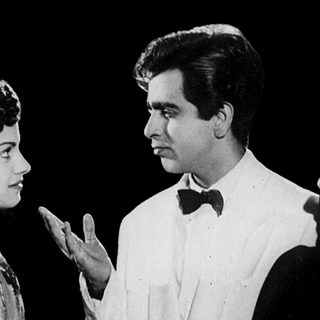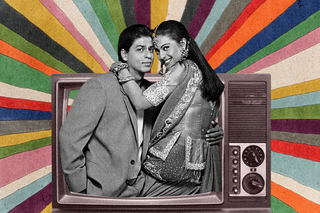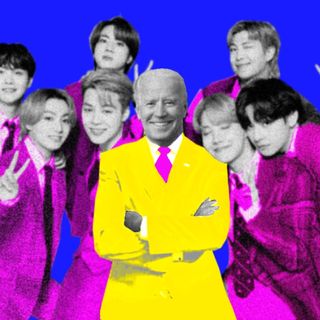
Can We Move On: From the Trope of Friends Who End Up Together Because Men and Women Can Never Be ‘Just Friends’
The trope deems it tragic when friends of the opposite sex don’t end up as lovers, suggesting that platonic relationships are “lesser than.”

In Can We Move On, we revisit old tropes and question whether they have any remaining cultural relevance.
“Ek ladka aur ek ladki kabhi dost nahin ho sakte (A man and a woman can never be just friends),” Mohnish Bahl’s character said in 1989’s Maine Pyar Kiya. This isn’t the first time Bollywood peddled a myth; unlike many of its predecessors, though, this myth has stood the test of time. This is, in part, perhaps, due to the sheer number of times the myth has been reinforced through the trope that plays out as friends of the opposite sex inevitably ending up in a romantic relationship.
This isn’t even an inconsequential trope that blends too seamlessly into the plot for people to even register its existence; it’s quite the opposite, in fact. “‘Pyar dosti hain (Love is friendship).’ This single line has been the [very] crux of many Bollywood blockbuster movies,” notes an article from 2016. Indeed, almost a decade after Maine Pyar Kiya, 1998’s Kuch Kuch Hota Hai brought the trope alive through the friends-turned-lovers, Anjali and Rahul, played by Shahrukh Khan and Kajol. In its tow, came in Kim Sharma’s and Jugal Hansraj’s characters from Mohabbatein in 2000, and Rani Mukerji’s and Hrithik Roshan’s from Mujhse Dosti Karoge in 2002 — playing childhood friends whose destinies were romantically entwined.
Having distorted the idea of friendships between people of the opposite sexes for the “90’s kids,” the trope didn’t retire. In 2008, the cult classic Jaane Tu… Ya Jaane Na fortified the trope through the love story between two best friends, Aditi and Jay, played by Genelia D’Souza and Imran Khan. Coupled wih A.R. Rahman’s music, the fresh pairing taught yet another generation of Indians that when men and women think they’re just friends, they’re basically kidding themselves. In the years that followed, New York and Wake Up Sid in 2009, Band Baaja Baraat and Break Ke Baad in 2010, and Mere Brother Ki Dulhan in 2011 — among countless others — attempted to convert those whom Jaane Tu… may have failed to.
The trope is, of course, hilariously unrealistic and aggressively heteronormative — given that not everyone is either heterosexual or cisgendered. However, the biggest problem with this seemingly “cute” trope probably lies in people treating it as the gospel truth. Being conditioned for years into believing that men and women can’t be “just friends,” didn’t just create romantic expectations in the minds of many women towards their male friends, but also encouraged a ridiculous number of men to hit on their female friends. The latter group, of course, already teeming with male entitlement, came up with the sexist concept of the infamous “friend zone.”
Related on The Swaddle:
How Pop Culture Paints an Unhealthy, Unsustainable Picture of Friendships
“Much has been written about the horrors of the ‘friend zone,’ to which ‘nice guys’ are supposedly banished by their female friends, as though friendship is a gateway to sexual gratification through which men should charge, no matter how many times they might hear the word ‘no,'” Meredith Clark, a cultural commentator, wrote in NBC News.
While we can’t be sure whether the concept of “friend zone” was bred by this trope or is yet another spawn of male entitlement, what is intuitively evident is that the trope has propelled its appeal. And in doing so, it has “posit[ed] that no intimacy can exist between women and men that cannot and will not turn sexual… contribut[ing] to a sense that women have to always be cognizant of their supposed effects on men, regardless of their relationship, and that the emotional intimacy of a friendship might just be a means to a different end for one party,” Clark notes.
Clark’s words might seem like speculation; they’re not. An article in The Federalist by a man who believes men are, by default, entitled to the wombs of women they’ve been friends with, states that sex is the “only one thing you (women) can give [him that] his man friends can’t.” He goes on to state, “Consider your best guy friend. Are you attracted to him? Does he fill you with the biological desire to repopulate the earth? If not, then do your ‘friend’ a solid and let him go. Call him up and tell him, ‘It’s not my fault that your facial symmetry grosses out my ovaries, but it was my fault that I got your hopes up by putting you in the friend zone. As restitution, please accept the phone numbers of five girls I know who find you attractive. Stop wasting your time with me and go hang out with a girl who might one day bear your children.'”
The trope, basically, tells men they’re entitled to something they’re actually not; the notion of the “friend zone,” then, attacks a woman’s right to confront the said men with reality. In the process, they become instrumental in perpetuating rape culture. “At an age where young people are starting to explore and understand sexual relationships and sexuality as a whole, the ‘friend zone’ is damaging to their ideas about consent… Nothing entitles you to sex. Nothing entitles you to a relationship,” notes an article on Bustle.
Related on The Swaddle:
Is This Normal? “I Imagine Friendships With Fictional Characters”
If that wasn’t enough, the trope deems it tragic when friends of the opposite sex don’t end up as lovers. In doing so, it implies that platonic relationships are somehow inferior to romantic ones — that the former must, eventually, metamorphose into the latter, like a tadpole into a frog or a caterpillar into a butterfly.
Besides, it also holds the potential to make men and women who, genuinely, are “just friends,” awkward — especially when they’re surrounded by people who treat the trope as a fact of life and refuse to stop projecting that belief onto them. The only way to avoid the awkwardness, then, is to stick to circles that don’t include people from the opposite sex. The result of that: learning about the opposite sex only through other harmful stereotypes, and treating them as though they are beings from another planet.
As Clark wrote, “When friendship is peddled as a means to a different end, it makes it hard for both sexes to build the intimacy that being friends requires.” And that’s precisely why it’s high time the trope of men and women not being able to stay just friends was retired. It doesn’t do anyone any good. It is, perhaps, time we learned to celebrate friendships between men and women without expecting them to become lovers eventually. Bollywood did that, after all, in 2002’s Mere Yaar Ki Shaadi Hai with Uday Chopra’s and Bipasha Basu’s characters, in 2004’s Main Hoon Na with Shahrukh Khan’s and Amrita Rao’s, and in 2013’s Yeh Jawaani Hai Deewani with Ranbir Kapoor’s and Kalki Koechlin’s.
At this point, perhaps, the endurance of the trope serves to reflect our patriarchal, heteronormative mindset — one where we still look at women as objects of desire, ultimately, and than as people in their own right.
So, can we move on from the dated, toxic trope, and for a change, celebrate platonic relationships between people instead — irrespective of their genders and sexualities?
Devrupa Rakshit is an Associate Editor at The Swaddle. She is a lawyer by education, a poet by accident, a painter by shaukh, and autistic by birth. You can find her on Instagram @devruparakshit.
Related


The Buzz Cut: U.S. President Seeks Expertise of K‑Pop Band to Solve Anti‑Asian Crimes
